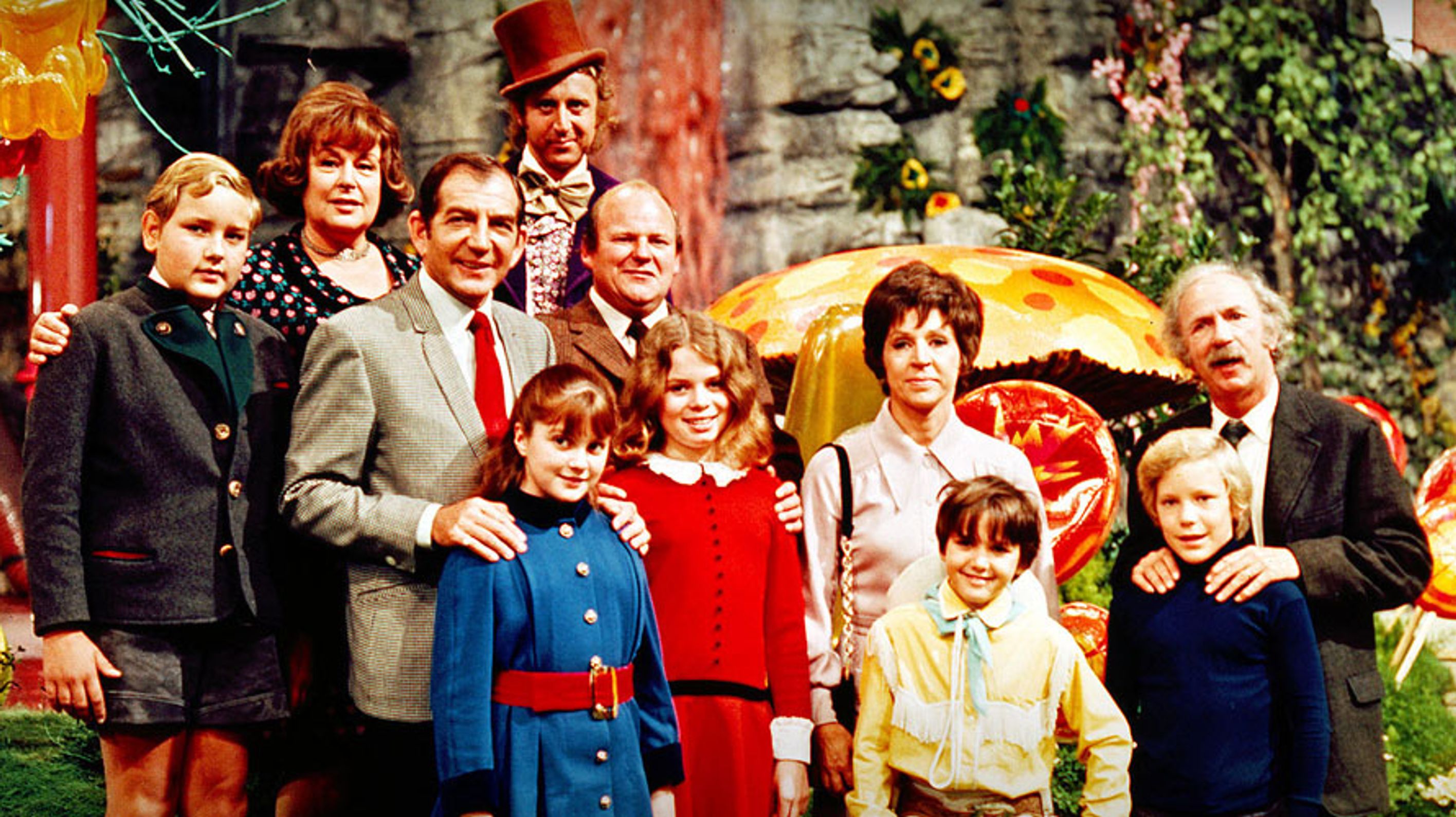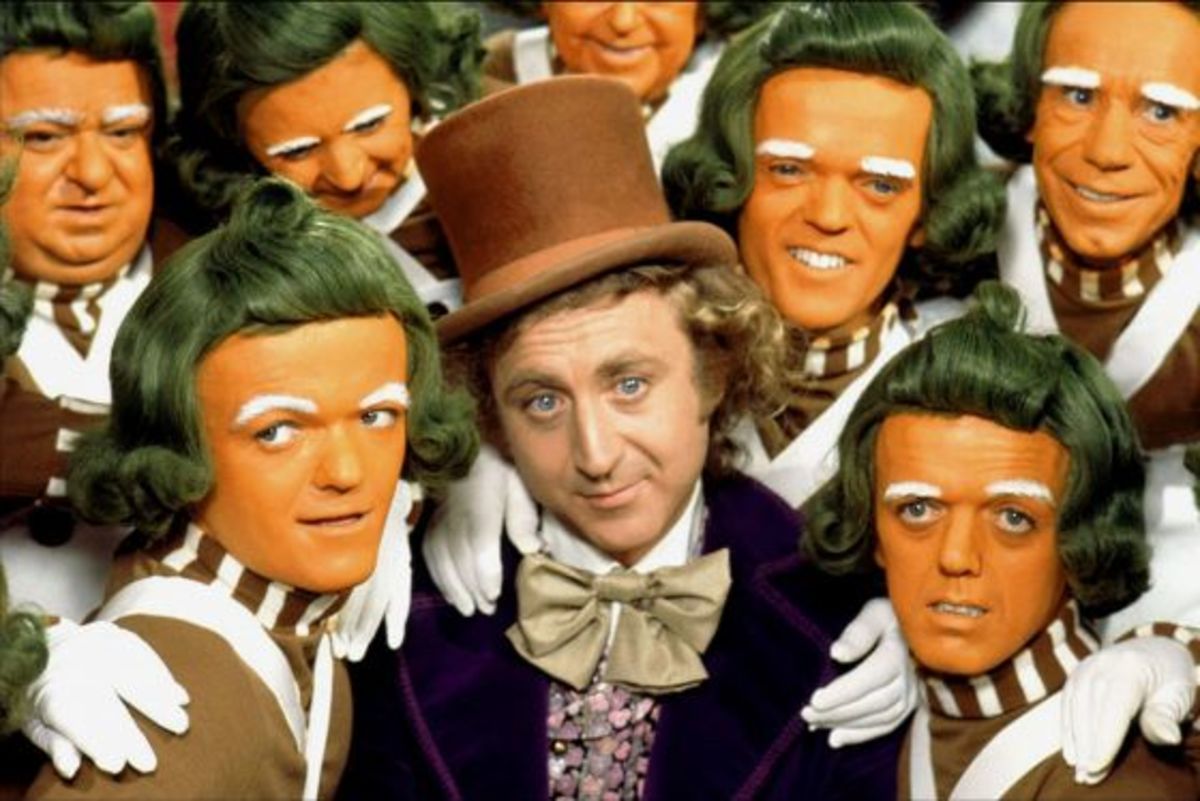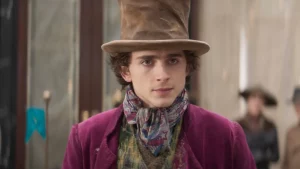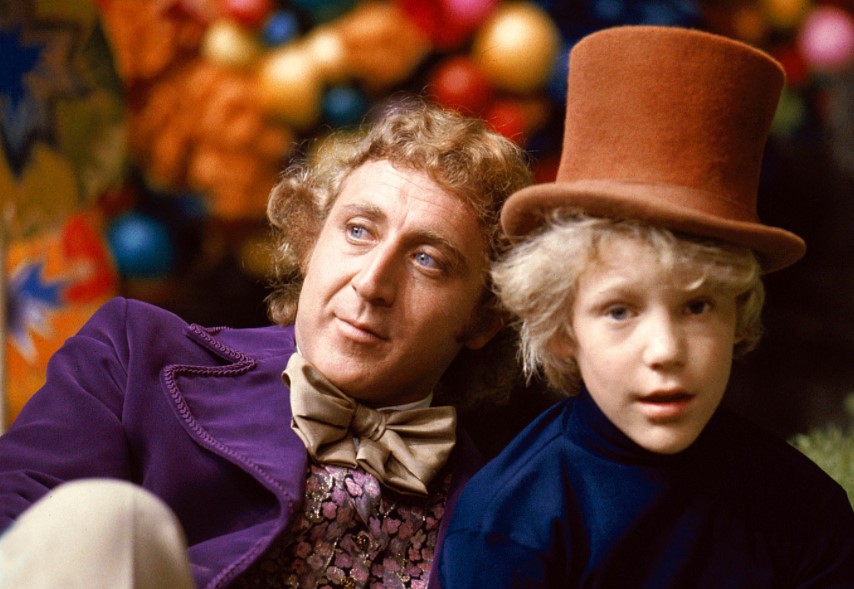For over fifty years now, Willy Wonka and the Chocolate Factory has captured the collective imagination of children and adults alike. Based on the seminal 1964 Roald Dahl novel, Charlie and the Chocolate Factory, Willy Wonka did not have initial success at the box office, but it was critically acclaimed; receiving Golden Globe and Academy Award nominations before eventually finding an audience on television and home video.
While Dahl himself infamously disowned the film due to various story changes, general audiences would go on to fall in love with Willy Wonka thanks to its excellent musical numbers, groundbreaking effects work, and the iconic performance of the late, great Gene Wilder as Wonka himself. But these days, the 1971 classic is far from the only adaptation.
2005’s Charlie and the Chocolate Factory, directed by Tim Burton, was and is admittedly polarizing; but is often held up by fans of the book as the superior adaptation due to it being more accurate to the source material. And soon enough, Timothee Chalamet will don the candy maker’s iconic top hat in the prequel film Wonka. So, where does that leave the original movie?
With the sleeker, more book-accurate adaptation already nearly twenty years old and a shiny new prequel just on the horizon, is the original 1971 film still the best adaptation? Does it even still hold up when you take nostalgia out of the equation? In my opinion, yes. Now without further ado, I’ll explain exactly why that is.
Also Read: Wonka Review – A Whimsical World of Pure Imagination
Willy Wonka (1971) Plot

Our story centers on the young Charlie Bucket, a poor boy who lives in a small, shabby cabin with his mother and both sets of grandparents; working a paper route to help his family keep food on the table. After passing by Willy Wonka’s chocolate factory on the way home, Charlie’s Grandpa Joe tells him that the famous candy maker shut down the factory due to corporate espionage and restarted production three years later with an entirely new staff and without ever reopening the gates to the public.
However, answers to these mysteries aren’t as out of sight as they may seem; as Wonka himself announces he’ll be giving a full tour of his factory, as well as a lifetime supply of chocolate, to anyone that finds one of five golden tickets hidden inside Wonka Bars. People around the world quickly become obsessed with the prize, frantically buying hundreds upon hundreds of Wonka Bars in an effort to win.
The first four tickets are soon found by an overeating German boy named Augustus Gloop, spoiled brat Veruca Salt, competitive gum-chewer Violet Bauregard, and the television-obsessed Mike TV. With how poor the Bucket family is, Charlie is only able to buy two Wonka Bars over the course of the contest, neither of which contain a ticket. But after learning the supposed fifth ticket in Paraguay was a forgery, Charlie manages to find the last ticket for himself; choosing Grandpa Joe as his chaperone for the factory tour.
The eccentric Willy Wonka leads the winning children and their chaperones inside, revealing that it is no ordinary candy factory, but a self-contained magical world filled with chocolate waterfalls, candy forests, and all sorts of wacky, seemingly impossible concoctions. All of which is operated by the Oompah-Loompahs, a magical race of singing imps that Wonka rescued from Loompah Land.
As the tour progresses, the other four children are seemingly doled out karmic punishments by the factory. Augustus drowns in a chocolate river due to his gluttony, Violet gets blown up into a giant blueberry thanks to her obsessive gum-chewing, Veruca is deemed a “bad egg” and sent down a garbage chute because of her selfishness, and Mike TV gets trapped inside of a television due to a teleportation incident caused by his own arrogance and obsession with television.
Though only Charlie remains, Wonka angrily declares that he will not be receiving the promised lifetime supply of chocolate because he and Grandpa Joe stole Wonka’s experimental Fizzy Lifting Drinks earlier in the film. Grandpa Joe swears to hand over an Everlasting Gobstopper to one of Wonka’s competitors as revenge, but Charlie decides to return it to Wonka instead.
Here, Wonka reveals the truth. The contest, and the competitor who tempted all five children when they first received their tickets, were all an elaborate ruse to help Wonka determine who would inherit his factory. And by not giving into temptation, Charlie passed the test; winning a life and home for himself and his family.
Why Willy Wonka Still Holds Up

Much like classic fairytales, Willy Wonka and the Chocolate Factory is a morality tale; the moral here being the value of selflessness. Willy Wonka initially closes the factory because of selfish and greedy corporate spies. The rest of the world obsessively buys Wonka Bars by the hundreds because they want the prize for themselves. And the other ticket winners are denied their grand prize because of their selfishness.
But Charlie, the poorest of the group and the one who has the most reason to only think of himself, never gives into that temptation. He shares the Wonka Bar he gets for his birthday with the rest of his family, gives most of what little money he has to his grandfather, and returns the Gobstopper to Wonka even after he yelled at him. By recognizing the value of selflessness, Charlie walks away with the biggest prize of them all in the factory itself.
The simple but universal truth behind this message is a major part of why Willy Wonka continues to resonate with people to this day. But even beyond that, it’s an incredibly charming and entertaining story. The other ticket winners are appropriately hateable, the iconic musical numbers are incredibly catchy, and the costuming and set design do a great job at sucking you into this magical and eccentric world.
But perhaps what truly elevates the film is Gene Wilder’s fantastic performance as Willy Wonka. He’s effortlessly charming, genuinely funny, and seems to constantly exude a warm and welcoming presence. Yet at the same time, there’s something very enigmatic about him. From his first scene, he establishes a deceitful side to him by faking a limp and it’s often deliberately difficult to get a read on him.
Did Wonka really rescue the Oompah-Loompahs or are they something else entirely? It’s never clarified. Did the other kids even survive the punishments given to them throughout the tour? We don’t know until the very end. And scenes like the infamous tunnel sequence or Wonka snapping at Charlie at the end showcase a much darker side to the character that’s never fully elaborated on. And all these unexplained eccentricities manage to make him even more compelling as Wilder’s brilliant performance lets the imagination run wild with possibilities.
In Conclusion

While I haven’t seen Wonka yet at time of writing, a part of me can’t help but feel that its premise runs counterintuitive to the character’s appeal. So much of what made Willy Wonka work in the original film was that indescribable enigmatic quality of Gene Wilder’s performance, so isn’t giving him backstory missing the point? Admittedly, the 2005 film did this too, but frankly that was one of my biggest issues with it. I don’t know if Wonka ultimately works or not, but I hope that by doing its own thing instead of retelling the original story, it can capture the imagination of its audience in much the same way that the 1971 film did.
Despite its age, Willy Wonka and the Chocolate Factory is still one of the most wonderful and charming films ever made. Its musical numbers are infectious, its world is delightful, its characters are compelling, its themes are universal, and its central performance is endlessly captivating. Willy Wonka and the Chocolate Factory, by every possible definition, still holds up.
Follow us on Facebook, Twitter, Instagram, and YouTube for more entertainment coverage.

